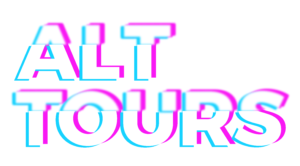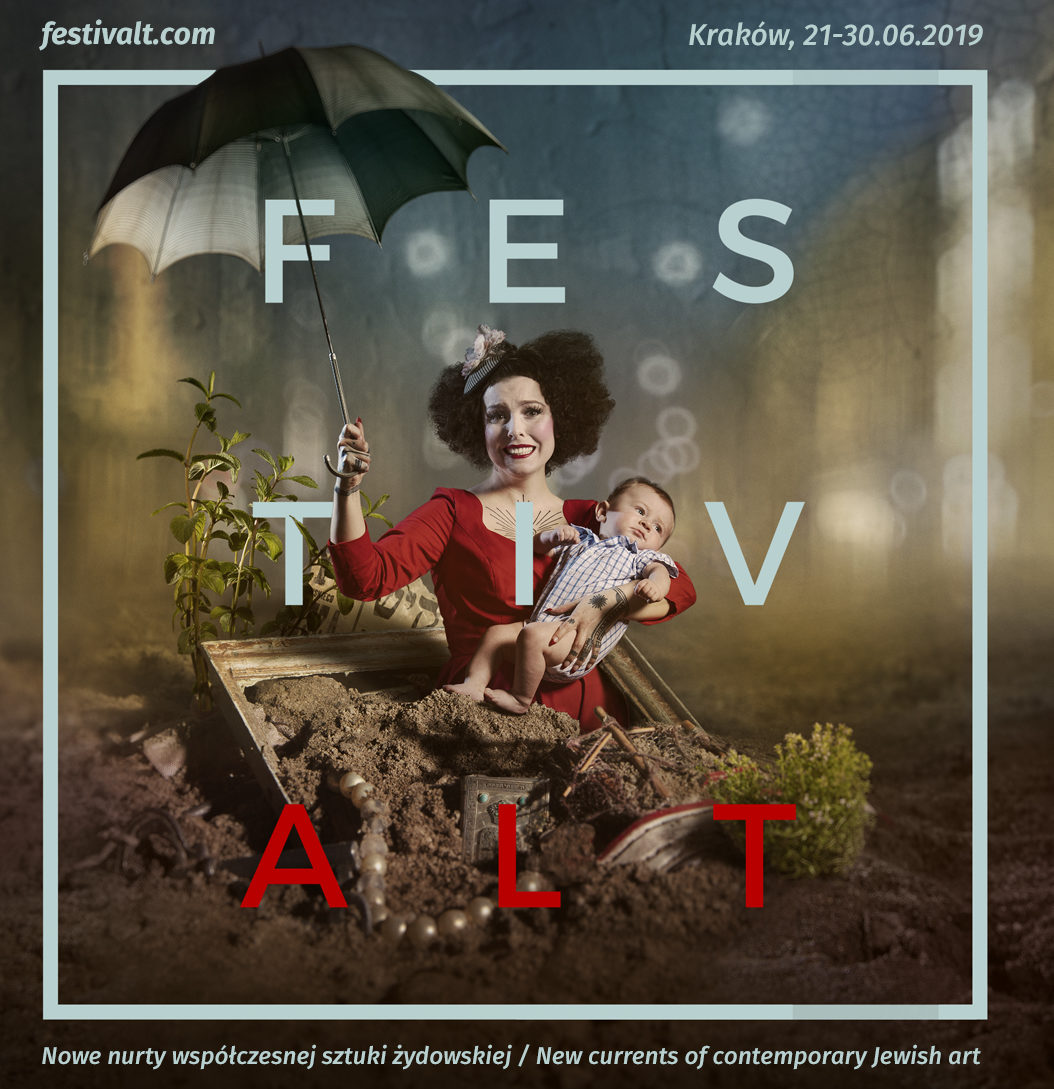
Since the collapse of Communism, tourism in Poland has shot up, and nowhere more so than in Krakow, where 14 million visitors explore the city each year. Much of this tourism is devoted to learning about Krakow’s Jewish history and to visiting nearby Auschwitz-Birkenau. In recent years, the city’s Jewish heritage tourism has neared a breaking point: the Jewish Quarter’s streets are clogged with tour groups and buses, and golf carts crisscross the city blaring pre-recorded audio tours. While some tours are of course very informative, there is such a glut of offerings that the cultural wires of the city have become crossed: competing billboards advertize 2-for-1 trips to Auschwitz and the Wieliczka Salt Mines; every day, hordes of visitors stop by courtyards and buildings that appeared in Schindler’s List; golf carts broadcast tours that are often misleading or downright inaccurate.
ALT Tours is FestivALT’s response to this phenomenon, a way of breaking through the noise and inviting you in to an ongoing conversation about the city’s cultural complications and mixed representations of Jewishness. From the streets of the former Jewish Quarter, to the site of the Krakow Ghetto, a local concentration camp, these tours blend storytelling and history, personal experience and cultural research. For the first time ever, we are offering these tours online. Our virtual tours combine live narration and discussion with pre-recorded footage and archival images, documents, and video. While everyone is stuck at home, we bring the tours straight to you.
Podgórze: The City That Was Never To Be
Podgórze – now an increasingly popular district of Krakow – used to be an autonomous city, separated by the Vistula River. It took its name from its location at the foot of the Lasota Hill, where over time it developed into an important commercial and industrial center. The next phase was supposed to develop Podgórze into a garden-city and although as cities go, it remains an extraordinarily green area, it instead became the site of the Krakow ghetto, established in 1941 by the Nazis. There are two other sites here that are significant to the city’s history during the war: the Liban Quarry and the site of the former concentration camp KL Plaszow. In more recent times, after a pedestrian bridge connected Podgórze to the favoured tourist area of Kazimierz, the district became a popular destination amongst tourists and city goers visiting the bars and restaurants by the river. Podgórze’s picturesque greenery, however, is more hidden, and a deeper look exposes it’s oldest history and asks difficult questions about the contemporary fate it’s spaces that connect to the history of the Holocaust.
Created and performed by: Aleksandra Janus
Film Direction / Production: Paulina Fiejdasz
Cinematography : Artur Michalik
Additional cameras (drone): Maciej Karnas
Editing: Maciej Karnas
Music / Sound: Alex Roth
Tour length: 60 minutes + discussion
Dates & time (Polish time)
Saturday, October 17th at 7:00pm Polish Time [in Polish]
Sunday, October 18th at 12:00pm Polish Time / 8:00pm Melbourne Time [in English]
Sunday, November 8th at 7:00pm Polish Time / 1:00pm New York/Toronto [in English]
ALT Tours are free but registration is required.
In cooperation with Allianz Kulturstiftung and FoJam.
This project was co-financed by the Dutch Jewish Humanitarian Fund, JDC Polska and Asylum Arts.
A public project co-financed by the Ministry of Foreign Affairs of the Republic of Poland through the competition “Public Diplomacy 2020—A New Dimension.” The performance reflects only the views of its creators and holds no bearing on the official position of the Ministry of Foreign Affairs.
PŁASZÓW: MEMORY OVERWRITTEN
Over the last 200 years, the site of KL Płaszów, in the south of Krakow, has contained Austro-Hungarian military fortifications, two Jewish cemeteries, and a Nazi labor camp and concentration camp; today, it primarily functions as a public park. The future of the site and the way its past is presented remain an open question. On a virtual tour with FestivALT co-director Adam Schorin, we’ll explore the history of this site, discover what remnants of its past lives are still present, and engage in a complicated debate about how the site should be treated today.
Written, edited, and performed by Adam Schorin
Videography by Patryk Dróżdż
Tour length: 60 minutes + discussion
Dates & times (Polish time):
August 29, 2020 – 7:00 pm
August 30, 2020 – 12:00 pm
September 6, 2020 – 7:00 pm
The tour will be performed in English.
ALT Tours are free but registration is required.
In cooperation with FoJam.
The project was co-financed by the Dutch Jewish Humanitarian Fund, JDC Polska and Asylum Arts.
A public project co-financed by the Ministry of Foreign Affairs of the Republic of Poland through the competition “Public Diplomacy 2020—A New Dimension.”
The performance reflects only the views of its creators and holds no bearing on the official position of the Ministry of Foreign Affairs.
KAZIMIERZ UNSEEN AN ALTERNATIVE TOUR OF KRAKOW’S FORMER JEWISH QUARTER
At first glance, Krakow’s district of Kazimierz feels like a hipster paradise: trendy bars, quaint cafés, and popular restaurants sit among the ruins of Kazimierz’s Jewish past. But there’s an invisible Kazimierz as well, full of magnificent and tragic history, and a present complicated by gentrification, mass tourism, and questionable representations of Jewish culture. FestivALT co-directors Michael Rubenfeld and Adam Schorin take you on a live, virtual, critical tour that will open the door to some of Kazimierz’s hidden narratives and encourage you to see beyond the visible exterior.
Written and performed by Michael Rubenfeld and Adam Schorin.
Music and sound by Alex Roth.
Videography by Patryk Dróżdż.
Tour length: 45 minutes + discussion
Dates & times (Polish time):
August 2, 2020 – 7:00 pm
August 5, 2020 – 8:00 pm
August 9, 2020 – 12:00 pm
The tour will be performed in English.
ALT Tours are free but with obligatory registration.
In cooperation with FoJam.
The project was co-financed by the Dutch Jewish Humanitarian Fund, JDC Polska and Asylum Arts.
A public project co-financed by the Ministry of Foreign Affairs of the Republic of Poland through the competition “Public Diplomacy 2020—A New Dimension.”
The performance reflects only the views of its creators and holds no bearing on the official position of the Ministry of Foreign Affairs.

